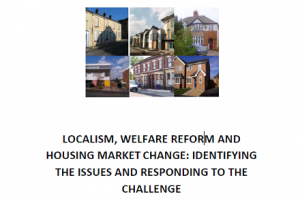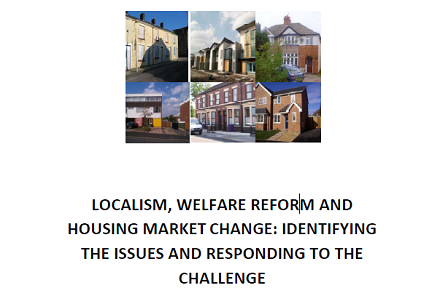Social housing tenants risk becoming homeless, while potential home owners will face a housing shortage in the coming years, according to an industry-leading new report.
 |
| [relatedPosts title=”Related Posts”] |
|
|
On 8 February, the Northern Area Social Housing (NASH) Forum published the first regional forecast for the impact of the Government’s radical new policy framework.
The independent report is being backed by the National Housing Federation.
NASH is a group of housing associations in Staffordshire and the research looks at the need for investment and regeneration, as well as proposed future models to deliver housing, in the context of the Coalition’s localism policy.
While the report focuses on Staffordshire, the conclusions reflect issues felt across the UK and paint a bleak picture for the UK housing sector.
Gavin Smart, Assistant Director, Research and Futures, at the NHF said:
“NASH’s timely and welcome study illustrates the housing sector’s challenges in the UK.
“Created by the economic downturn and public spending cuts, these challenges are amplified in housing markets that are only part-way through a process of fundamental restructuring.
“This report demonstrates how important it is that housing associations and their local authority partners work to deliver a co-ordinated and strategic response that best protects their tenants and the communities they live in.”
Localism, welfare reform and housing market change: Identifying the issues and responding to the challenge was jointly written by housing consultant Brendan Nevin and academic Philip Leather, from Nevin Leather Associates.
The report explores the changing market for housing; the impact of welfare reform; the likely impact and legacy of the credit crunch and recession on the supply and demand for housing; and the challenges and opportunities presented by the new localism framework.
The main findings of the research are:
- There will be stark choices for housing benefit claimants: The changes will mean that they face the choice of debt, cutting back on basic living expenses or facing the risk of homelessness.
- The current weakness in the housing market, both in terms of turnover and prices, will at best continue for a number of years.
- The increasing numbers of households remaining out of owner occupation will increase the demand for private renting. Fewer households will be able to secure independent accommodation, more children will remain living with parents, and more people will share accommodation with friends or others.
- Social housing provision is being reoriented away from housing those in greatest need, towards those who are working on low and average incomes. The poorest are also being hit the hardest through the Government’s welfare and Housing Benefit reforms.
- The changes to housing benefit will provide an incentive for landlords to subdivide properties for smaller families displaced from social housing because they have had housing benefit reduced as a result of under- occupation. This benefit reduction, which averages £13 per week, will affect an estimated 28% of all working age social housing tenants in the NASH area.
- In more disadvantaged locations, the collapse in market activity will stall urban renewal and the reform of housing benefit is likely to have a significant impact on housing services and the use of low value stock.
- In areas which have stronger economic potential and higher household growth, such as Stafford and East Staffordshire, the current failure in housing supply will increase housing shortages, raise prices and worsen affordability in the longer term as economic growth returns.
The report concludes with a series of policy recommendations for Central Government, local authorities and local housing agencies which seek to improve the delivery of housing and renewal activity in the new environment, while minimising social costs for those in housing need.
Sinéad Butters, Chair of NASH and Chief Executive of the Aspire Group, said: “We have already seen warning signs but this report confirms the harsh reality of the effects of the Government’s proposed reforms on both those who provide and live in social housing.
“Housing association tenants will suffer financially and risk becoming homeless as a result. Housing associations must invest in their services and work with other agencies to support their customers through what will be a traumatic few years ahead.”
The report’s co-author Brendan Nevin said: “This report confirms that the proposed reforms to housing benefit will have a major impact on the housing market and disadvantaged communities within Staffordshire. All housing providers will need to review their support services to ensure they can help the very large number of people who face losing their home if they cannot find work that increases their ability to pay a higher proportion of their rent.”
Further Information
Localism, welfare reform and housing market change: Identifying the issues and responding to the challenge PDF is available here.
NASH Forum
The Northern Area Social Housing (NASH) Forum is a group of housing associations who work across Stoke-on-Trent and parts of Staffordshire. They have been working together for almost 10 years and are keen to develop and share good practice, act as a sounding board on housing issues and raise the profile of the local housing sector with government and partners.
The Aspire Group
The Aspire Group is a social business that provides housing, training and neighbourhood services. The group is made up of:
- Aspire Housing, which provides around 20,000 customers with quality affordable homes and services;
- Enterprising Futures is the social enterprise arm of the Aspire Group. Training providers PM Training and recycling charity Furniture Mine are part of Enterprising Futures ;
- The Realise Foundation, our unique regeneration charity that supports apprenticeships, lifelong learning and environmental improvement.
.





